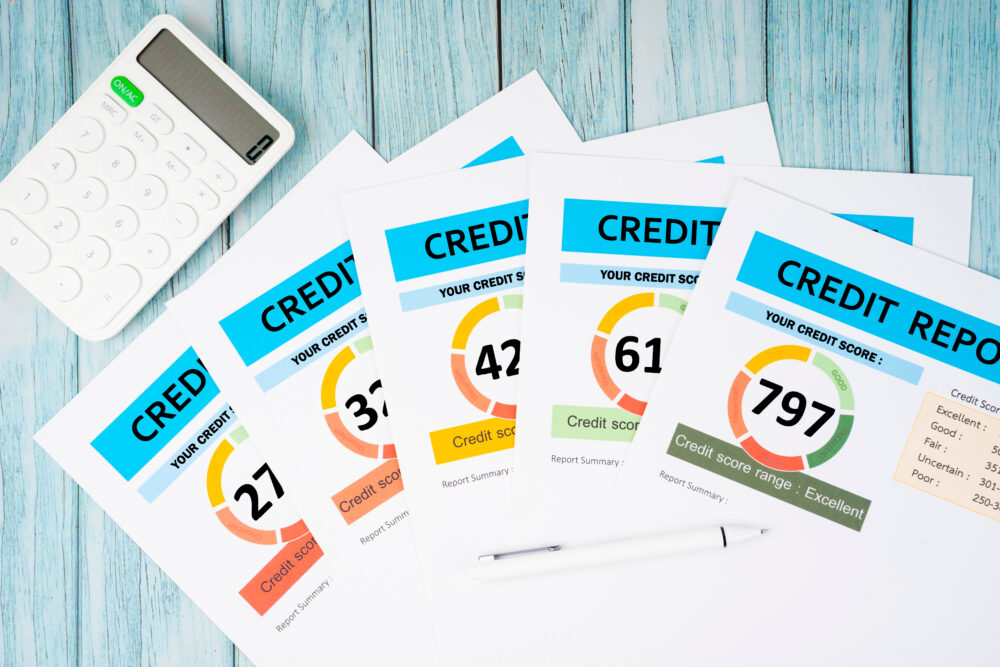
Cosigning for a loan might seem like a simple act of support, but it can have far-reaching financial implications. Before you agree to be a cosigner, it’s crucial to understand the risks involved. Here are 16 risks associated with being a cosigner that can have significant impacts on your financial health and stability.
1. You’re Fully Responsible for the Debt

As a cosigner, you’re not just a backup payer; you’re fully liable for the debt. If the primary borrower defaults, creditors will turn to you for payment, including any late fees or collection costs. This responsibility extends throughout the life of the loan.
2. It Affects Your Credit Score

The loan you cosign for will appear on your credit report, affecting your credit score. If the primary borrower misses a payment, it will harm your credit, potentially making it difficult for you to obtain loans in the future.
3. Limited Control Over the Loan

Despite your significant stake in the loan, you have minimal control over it. You can’t change the terms, renegotiate the interest rate, or decide how the loan should be managed, leaving you at the mercy of the primary borrower’s financial habits.
4. Risk to Personal Relationships

Money issues can severely strain relationships. If the primary borrower fails to meet their obligations, it could lead to uncomfortable confrontations and potentially irreparable damage to your relationship.
5. Difficulty Getting Loans for Yourself

Being a cosigner can impact your own ability to secure loans. Lenders will consider the cosigned loan as part of your financial obligation, potentially hindering your ability to obtain further credit.
6. Your Assets Could Be at Risk

In case of default, your assets, including savings, property, and even retirement funds, could be targeted by creditors to recover the debt. This risk extends beyond just your immediate finances to your long-term financial security.
7. Legal Implications

If the borrower defaults, you might face legal action from the creditors. This not only involves paying off the debt but also potentially dealing with legal fees and court processes, adding to the financial burden.
8. Limited Options if the Borrower Dies

The death of the primary borrower can complicate matters. Some loans are not discharged upon death, which means you could be responsible for continuing payments, adding an unexpected burden.
9. Impact on Future Financial Decisions

Your financial flexibility can be significantly affected by being a cosigner. This additional financial obligation is considered by lenders when evaluating your eligibility for other loans, potentially limiting your future financial choices.
10. Emotional Stress

The responsibility of being a cosigner can be a constant source of stress and worry, particularly if the primary borrower’s financial behavior is unpredictable. This can take a toll on your mental and emotional well-being.
11. It’s Hard to Remove Yourself as Cosigner

Removing yourself as a cosigner is often a challenging process. Usually, the only way out is if the primary borrower refinances the loan in their name, which they may not qualify for or be willing to do.
12. Potential for Increased Debt

If the borrower defaults and you cannot cover the loan, you might have to incur additional debt to fulfill the obligation. This increased debt burden can disrupt your financial planning and savings goals. Furthermore, this additional debt can put a strain on your monthly budget, forcing you to cut back on essential or planned expenditures.
13. Impact on Retirement Plans

For older cosigners, the implications can be even more severe. Paying off a defaulted loan might mean tapping into retirement savings, jeopardizing your financial security during your golden years. This situation could lead to a delay in retirement plans or a significant reduction in the quality of life during retirement.
14. Higher Stakes for Business Loans

Cosigning for a business loan carries higher risks due to the larger loan amounts typically involved. If the business doesn’t succeed, you’ll be left holding the bag for a potentially substantial debt. Additionally, the failure of the business can be emotionally and financially draining, as you might lose not only your investment but also have to deal with the stress of covering the loan repayments.
15. Unforeseen Changes in the Borrower’s Life
Life is unpredictable, and unforeseen changes in the borrower’s life, such as job loss, illness, or divorce, can drastically impact their ability to repay the loan. As a cosigner, you’re inadvertently signing up to bear the brunt of these unforeseen circumstances, which can turn your financial world upside down.
16. It Could End in Financial Ruin

In extreme cases, cosigning a loan can lead to financial ruin. If you’re unable to meet the repayment obligations, you could face bankruptcy, destroying your credit and financial stability for years.
Think Before You Sign

Cosigning a loan is a decision that should not be taken lightly. It involves more than just lending your good credit; it’s about putting your financial future at risk. Before agreeing to be a cosigner, consider all the risks and whether you’re prepared to deal with them. If you’re looking for ways to help someone financially, explore other options that don’t involve putting your own financial health on the line.
Have you ever been a cosigner or are considering it? Share your experiences and insights in the comments below to help others make informed decisions about cosigning. Your story could be the cautionary tale someone needs to hear.
Tamila McDonald is a U.S. Army veteran with 20 years of service, including five years as a military financial advisor. After retiring from the Army, she spent eight years as an AFCPE-certified personal financial advisor for wounded warriors and their families. Now she writes about personal finance and benefits programs for numerous financial websites.
Comments